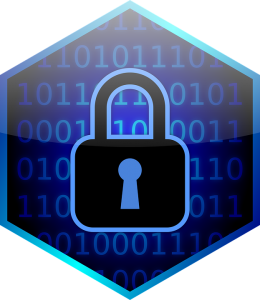The Digital Millennium Copyright Act makes it illegal to rip content from DVDs, Blu-ray discs, streaming sites, and many other forms of modern media. This harms authors and filmmakers alike because creators often want to incorporate content into new pieces of art; in the digital age, such uses are essential to criticism and commentary. The problem is that, while such uses are legal under fair use, the DMCA makes it impossible to access such content without the fear of criminal liability.
The UCI Intellectual Property, Arts, and Technology Clinic has long been active on this issue. In 2015, we obtained a nationwide exemption that affects documentary filmmakers and authors of multimedia e-books offering film analysis. Advocating on behalf of large coalitions of filmmakers (led by Film Independent, the International Documentary Association, and Kartemquin Films) and authors (led byAuthors Alliance, Organization for Transformative Works (OTW), the American Association of University Professors (AAUP), and Bobette Buster), IPAT clinic students and co-counsel filed extensive comments with evidentiary support and went to Washington DC to testify in hearings at the Library of Congress. Last fall, we were back at it. On December 18th, the IPAT Clinic submitted two sets of comments to the United States Copyright Office.
 On behalf of Authors Alliance, OTW, AAUP, and the Interactive Fiction Technology Foundation, together with our co-counsel at the Samuelson-Glushko Technology Law & Policy Clinic at Colorado Law, we filed a comment seeking to modify the existing exemption so that all authors can utilize the exemption: currently, only authors making fair use in ebooks that are nonfiction and “offer film analysis” can use it; we argued that all authors, not just this tight subset, should be able to utilize the exemption so that they, too, can make fair use. This includes scholars, fanwork authors such as Heidi Tandy, and cultural commentators like Kirby Ferguson. Stephanie Phan and Brian Tamsut led this effort for the IPAT Clinic. Read the comment here.
On behalf of Authors Alliance, OTW, AAUP, and the Interactive Fiction Technology Foundation, together with our co-counsel at the Samuelson-Glushko Technology Law & Policy Clinic at Colorado Law, we filed a comment seeking to modify the existing exemption so that all authors can utilize the exemption: currently, only authors making fair use in ebooks that are nonfiction and “offer film analysis” can use it; we argued that all authors, not just this tight subset, should be able to utilize the exemption so that they, too, can make fair use. This includes scholars, fanwork authors such as Heidi Tandy, and cultural commentators like Kirby Ferguson. Stephanie Phan and Brian Tamsut led this effort for the IPAT Clinic. Read the comment here.
On behalf of Film Independent, IDA, Kartemquin, and others, together with our co-counsel Donaldson + Callif LLP we sought to modify the existing exemption to apply to all filmmakers, not just documentarians. IPAT students took a deep dive into film history, unearthing no fewer than seventeen competing definitions of “documentary filmmaking” going back to the 1920s to show that it is not possible to draw a bright line between documentary filmmaking and other types of filmmaking. Countless examples of biopics, dramatizations, films “based on a true story,” and “hybrid” films that straddle the line between doc and fiction demonstrate that to issue a rule based only on the moniker “documentary” raises serious constitutional problems. Shaia Araghi and Lauren Wertheimer led this effort for the IPAT Clinic, with Karen Shin and Jianna Yun. Read the comment here.
What’s next? More comments will be filed in February and March, and in April the U.S. Copyright Office will hold hearings. See you inWashington!